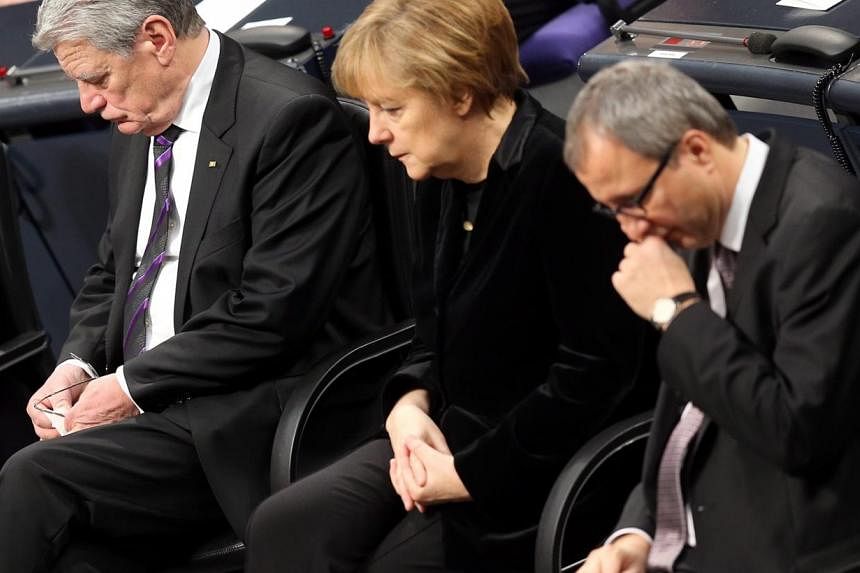BERLIN (AFP) - Germany's president said Tuesday that the memory of Auschwitz shapes German identity and gives the country a duty to protect the rights of all in a multicultural society.
Joachim Gauck, in a speech to parliament on the 70th anniversary of the liberation of the Nazi death camp, touched on how former East and West Germany had grappled in the post-war period to come to terms with the Nazi past and how future generations would do so.
With an Auschwitz survivor seated among the lawmakers who included Chancellor Angela Merkel, Gauck, a former dissident Lutheran pastor in the former East Germany, warned that remembering the Holocaust remained key to how Germany defines itself.
"There is no German identity without Auschwitz. The memory of the Holocaust remains a matter for all citizens who live in Germany," he said, to applause.
"It belongs to the history of this country."
He said the "moral duty" for Germany was not only to remember the past but also what he termed the "mission" to protect and preserve humanity and every individual's rights.
"We say that precisely in times when, we in Germany, again have to agree on cooperation between different cultures and religions.
"The community in which we all want to live will only thrive where the dignity of the individual is respected and where solidarity is alive," Gauck added.
Germany has been shaken by the emergence of an anti-Islam movement since October that has brought thousands on to the streets in support and in opposition, and has provoked a heated debate about immigration.
Gauck, whose role as head of state is largely ceremonial, is due to travel to the site of the former Nazi death camp at Auschwitz in southern Poland later Tuesday to take part in a commemoration in honour of the victims.
Some 1.1 million people, including one million Jews, perished in the twin death camps of Auschwitz-Birkenau which were liberated by the Soviet Red Army on Jan 27, 1945.

